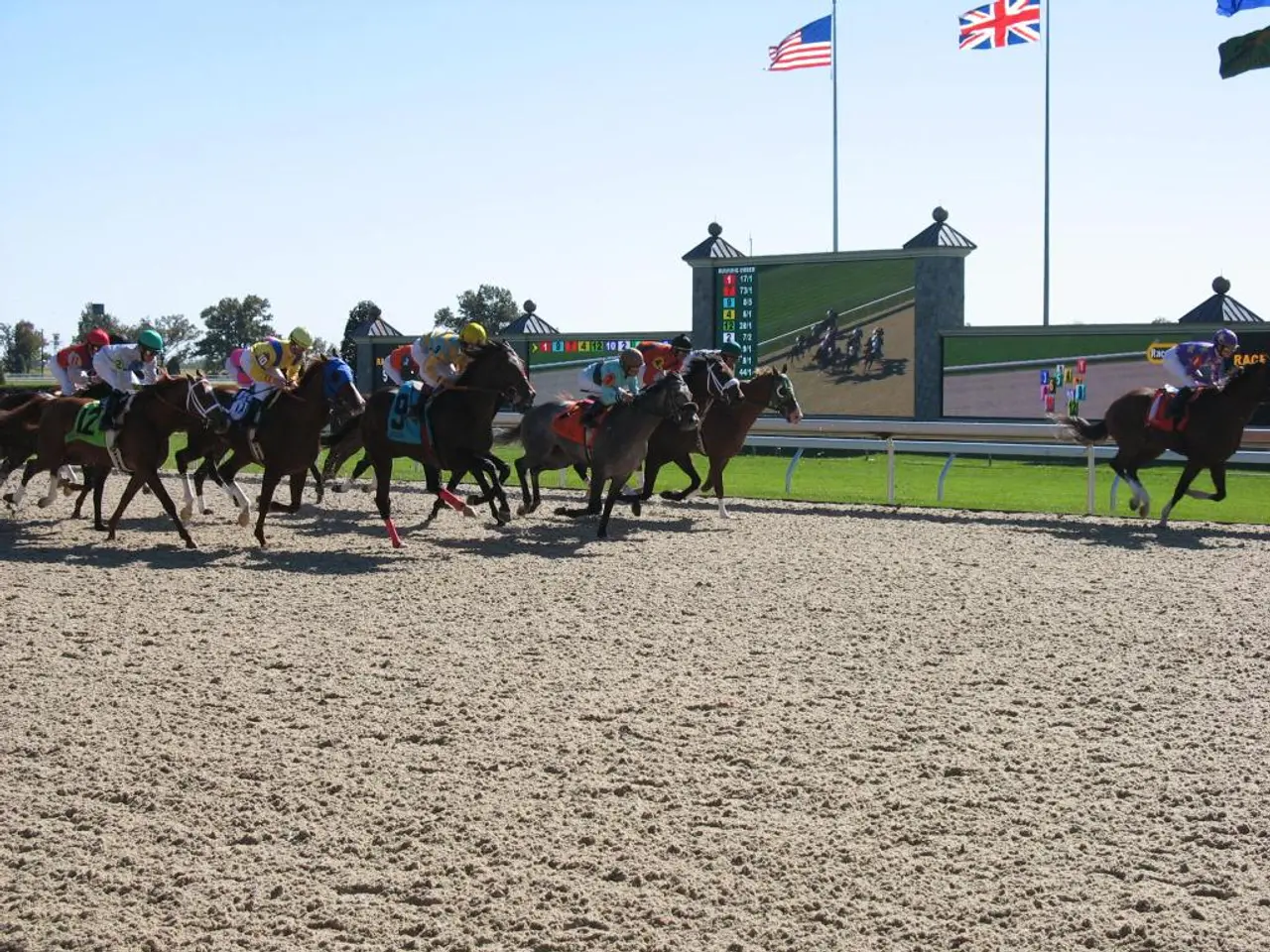Racing horses faces a decline, with the gaming sector stepping in to resuscitate the ailing industry
U.S. Horse Racing Industry Faces Continued Decline in 2024
The horse racing industry in the United States experienced a third consecutive year of decline in wagering in 2024, according to industry reports. The decline, which was the worst since 2020 when the COVID-19 pandemic affected businesses nationwide, saw a 3.35% drop in total wagering on Thoroughbred races to approximately $11.26 billion.
The decline in 2024 was not limited to wagering. There were 2.4% fewer race days in the U.S., totaling 3,787, and the total number of races declined 2.8% to 30,852. These figures represent a significant drop from the industry's peak in 2003 when parimutuel wagering hit a record high of over $15.1 billion, or an inflation-adjusted $25.7 billion.
Several factors have been attributed to the industry's decline. Scandals, including one involving legendary trainer Bob Baffert, haven't helped in attracting new horse racing bettors. Additionally, historical horse racing, a form of gaming that has found favor in states like Kentucky and Alabama, hasn't led to a significant increase in horse racing bettors.
However, historical horse racing has contributed to a slight increase in horse racing purses nationwide, with over $1.3 billion in 2024, an increase of about a half-percent. States like Virginia, which legalized historical horse racing machines in 2018, have seen positive impacts. In Virginia, the legalization of historical horse racing machines saved the Colonial Downs Racetrack and generated over $4 billion in annual wagers.
In an effort to revitalize the industry, several states have turned to casino gaming. Pennsylvania, for example, has authorized racetrack casinos with slot machines, table games, and sports betting, following Pennsylvania's example. Penn Entertainment, which began as a horse racing company, now operates four casinos in Pennsylvania and continues to own the Penn National Race Course. Nebraska has also authorized racetrack casinos, with several new racecourses and grandstands being built as part of casino resorts.
Some states are also directing substantial tax revenue generated by their commercial casinos to their horse racing industries. States like Massachusetts, New York, and Pennsylvania direct tax revenue to their horse racing sectors, with Pennsylvania casinos subsidizing horsemen to the tune of over $4 billion since 2004.
Despite the challenges facing the industry, Thoroughbred racing, which includes the Kentucky Derby, Preakness Stakes, Belmont Stakes, Travers Stakes, and Breeders' Cup Classic, remains the most popular form of the sport in the U.S. Greenwood Gaming and Entertainment, which owns and operates Parx, a racecourse in Pennsylvania, continues to operate, offering hope for the future of the industry.
However, the future of horse racing in the U.S. remains uncertain. The closure of historic racetracks like New Jersey's Freehold Raceway, considered the oldest horse racetrack in the country, officially closed in December 2021, serves as a reminder of the industry's struggles. The industry will need to find ways to attract new bettors and maintain the interest of existing ones to ensure its survival.
Read also:
- Peptide YY (PYY): Exploring its Role in Appetite Suppression, Intestinal Health, and Cognitive Links
- Toddler Health: Rotavirus Signs, Origins, and Potential Complications
- Digestive issues and heart discomfort: Root causes and associated health conditions
- House Infernos: Deadly Hazards Surpassing the Flames




